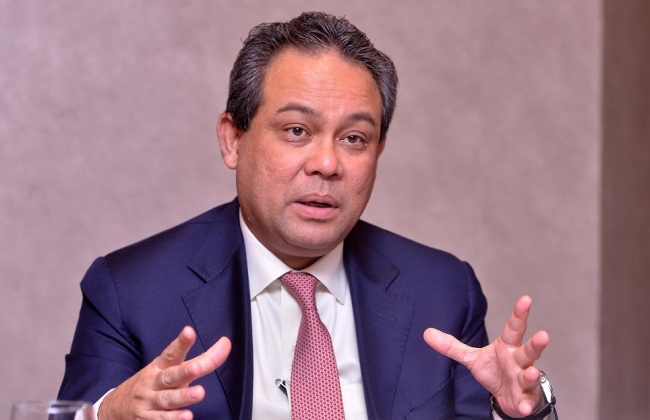[Herald Interview] Malaysia seeks investment from Korea's small, mid-sized firms
By 손지영Published : Nov. 24, 2015 - 18:04
Malaysia is a highly attractive investment location for South Korea’s small and medium-sized enterprises looking to expand their business in Southeast Asia, the head of its state-run investment promotion agency said Monday.
“Malaysia is particularly looking at smaller Korean companies -- which are seeking expansion elsewhere due to limited room for growth at home -- as key potential investors,” the Malaysian Investment Development Authority CEO Azman Mahmud said in an interview with The Korea Herald.
“Malaysia is particularly looking at smaller Korean companies -- which are seeking expansion elsewhere due to limited room for growth at home -- as key potential investors,” the Malaysian Investment Development Authority CEO Azman Mahmud said in an interview with The Korea Herald.

“We are looking to attract new investments from Korea’s midsized firms in the services sector as well as to encourage expanded investments into Malaysia’s manufacturing sector, which already has a strong Korean presence,” he said.
Korean SMEs specializing in chemicals and value-added specialty chemicals production, information and communication technology-focused businesses, including semiconductors and electronics production, and food manufacturing and services, especially of halal-certified foods, are particularly welcomed, according to the MIDA chief, who is currently in Seoul to discuss investment opportunities with local firms.
Boasting favorable business conditions including state policies encouraging foreign direct investment and a strong track record in terms of return on investment, Malaysia can become a core base for successful business expansion across Southeast Asia, according to MIDA.
“We want to encourage Korean firms to utilize Malaysia as a regional headquarters from which they can service other ASEAN (Association of Southeast Asian Nations) states, build up a supply chain or manage operational duties regionally,” said Mahmud.
The push is a part of the Malaysian government’s “principal hub” incentive scheme announced earlier this year to encourage foreign companies to set up “headquarters-like business services or activities in Malaysia” to serve the broader Southeast Asian region.
Incentives are given in the form of tiered tax reductions granted to a company according to its scale of value-creation, including levels of business spending, high-value job creation, value-adding functions, risks sustained by the company and revenue generation, MIDA said.
As a parliamentary democracy with a vibrant economy and an English-speaking workforce, Malaysia also offers investors strategic advantages unavailable in other developed ASEAN member states, according to the investment promotion agency.
“Uniquely positioned between the more developed and less developed countries in ASEAN, Malaysia offers high cost-competitiveness in conducting business,” said Mahmud, accentuating the high costs of operating in more advanced countries and the lack of legal and regulatory infrastructures conducive to FDI in less-developed states.
Malaysia was ranked 18th among 189 economies in the World Bank's Doing Business 2016 report, and was also rated as the world’s fifth most promising emerging markets in 2015 by Bloomberg -- the only ASEAN country included in the top 10.
As of December 2014, there were a total of 337 Korean manufacturing projects implemented in Malaysia involving total investments of $4.6 billion, with 16 more from January to September this year.
Some notable Korean companies with a sizeable presence in Malaysia’s manufacturing sector today include Samsung SDI, which produces lithium ion batteries, steelmakers POSCO and Kiswire and also Hanwha, which churns out solar modules in the country.
By Sohn Ji-young (jys@heraladcorp.com)


![[Exclusive] Korean military set to ban iPhones over 'security' concerns](http://res.heraldm.com/phpwas/restmb_idxmake.php?idx=644&simg=/content/image/2024/04/23/20240423050599_0.jpg&u=20240423183955)

![[Graphic News] 77% of young Koreans still financially dependent](http://res.heraldm.com/phpwas/restmb_idxmake.php?idx=644&simg=/content/image/2024/04/22/20240422050762_0.gif&u=)



![[Pressure points] Leggings in public: Fashion statement or social faux pas?](http://res.heraldm.com/phpwas/restmb_idxmake.php?idx=644&simg=/content/image/2024/04/23/20240423050669_0.jpg&u=)









